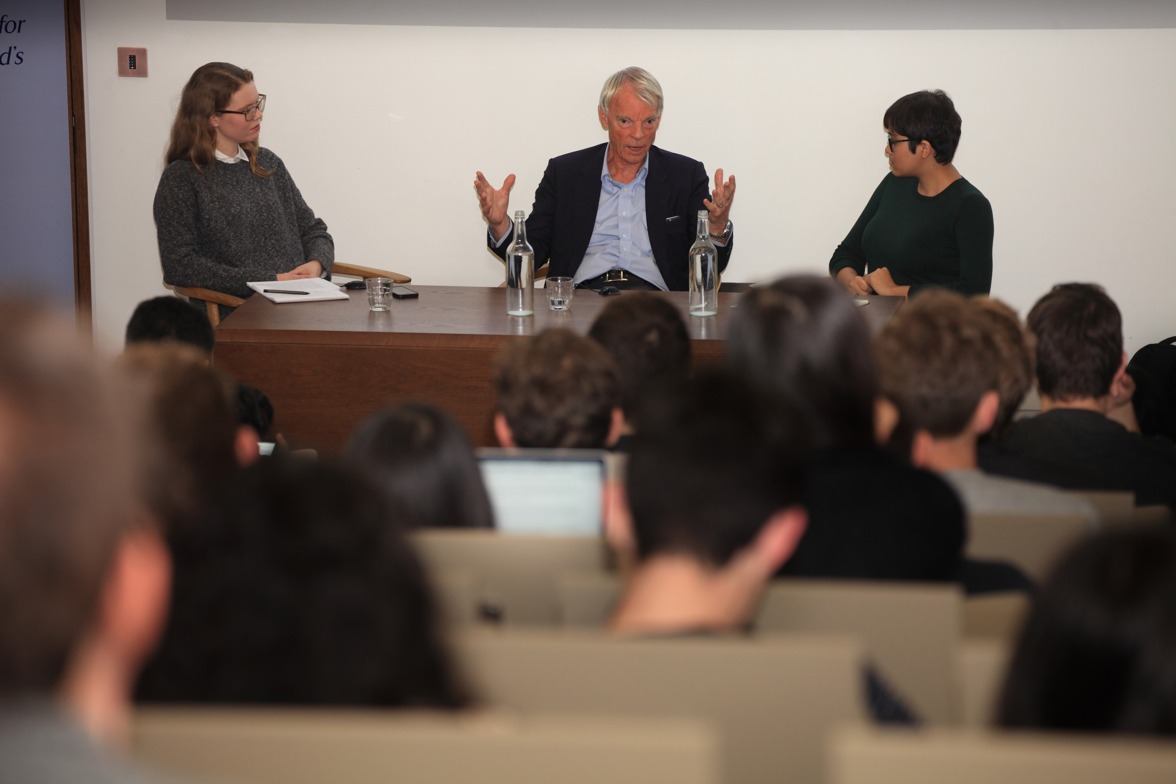The Rhodes Economics Forum hosted Nobel Laureate A. Michael Spence (Ontario & Magdalen 1966) on the 28th of November in Oxford, where he addressed recent patterns of economic growth in developed countries. Highlighting the post crisis low-growth equilibrium, the changing role of labour in the economy, and developed countries’ priorities, both in the past and present, with regards to globalisation, he inspired his audience of aspiring economists and scholars to contemplate the impacts of the emerging political and economic landscape.
As the global debt outpaces GDP, youth unemployment rates increase, and middle class employment opportunities fade, Professor Spence argued for greater structural reform and deeper fiscal policy. Since 2001, automation in the workforce is increasing rapidly as costs for technologies such as three-dimensional printing and artificial intelligence fall, allowing global supply chains to manufacture to actual market demand. This is coincident with greater income inequality within developed countries. Referencing work from his colleagues such as Thomas Piketty and Joseph Stiglitz, Professor Spence noted that markets cannot correct the challenges stemming from job polarisation and unequal distributions of resources amid other forces such as rent seeking.
Noting that he is, “a letter away from American Vice President Elect,” Professor Spence responded with cautious optimism on the outcomes of the U.S. presidential elections and UK referendum to exit the EU. He postulates that they have and will trigger a much needed debate on economic priorities and structures. While economists have long supported the need for first an open global system and then next policies to generate sustainable and inclusive real economic growth, he suggested that the current political landscape represents a reversal of those priorities, as countries protect domestic interests foremost.
Following his talk, Rhodes Scholars Friederike Reuter (Germany & Lincoln 2015) and Sonali Chowdhry (India & Merton 2015) engaged Professor Spence in a moderated discussion highlighting their interests in countries’ social security systems and workforce training, the popular rejection of globalisation, and the opportunities and risks that lie ahead. In each response, he focused on the pressing need for good governance. He highlighted that emerging technologies may need to be phased into the market and regulated appropriately; workers need opportunities to make a livable income while making meaningful economic contributions; and globally, “we,” a tricky pronoun to define, must be engaged in exploring solutions to the economic and social challenges faced by communities both domestically and globally.
The Rhodes Economics Forum (REF) is an active group of Rhodes Scholars interested in the study and advancement of the field of economics and its implications more broadly. In addition to scholar teas and reading groups, REF works to host one to two invited economics lectures per term. Speaker suggestions are always welcome, please email at rhodeseconomicsforum@gmail.com and all are very welcome to attend our events.


